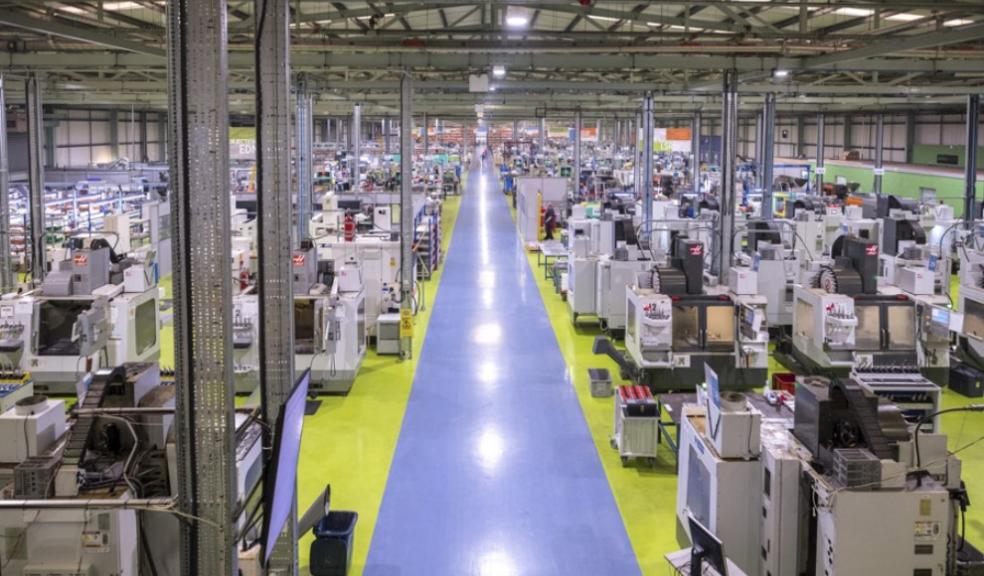
Protolabs Purchases GE Additive’s X-Line 3D Printers For 2020
As the demand for and possibilities with 3D printing continue to grow almost daily, companies are looking to expand their existing infrastructure to add new elements and new facilities. The latest example of this is Protolabs who have announced they are introducing GE Additive’s X-Line 2000R large-format 3D printing by late summer.
The company say that by adding this to their existing metal additive manufacturing capacity, they will be able to offer their customers access to new ways to create large format parts. Not only that but they will have increasingly complex geometries. The build volume for the metal laser melting machines is particularly useful for the aerospace and automotive industries where larger parts are often required.
Growing need
The new purchase shows the growing need for 3D printing in the most technical of industries. In the aerospace industry, for example, these larger and more complex parts are required, and 3D printing has become the favoured way to create them. With companies like Protolabs now able to use the GE Additive process, it is possible to scale up the cutting edge equipment they already have and meet growing customer needs.
The company is a perfect example of how 3D printing and additive manufacturing is growing. Based in Minnesota, it has 12 locations around the world and is currently working on a facility in Halesfield to be a new £5 million European headquarters. Opening later this year, the site will have at least 50 CNC machines and another 20 injection moulding presses.
Prototype to production
The company’s combination of the latest inventions in 3D printing alongside CNC machining shows that there is a clear ability to move these things from prototypes to production. As more customers require the creation of complex parts in bigger numbers and with greater reliability than ever, these combination systems are in high demand.
The aim is to be able to create the prototype that works out the problems and spots issues but then to be able to manufacture the parts on a much larger scale to meet demand. Not only that but with ever more stringent quality control measures such as powder analysis, material traceability and ISO and AS certified systems.
GE Additive systems
To help with this change in demand, Protolabs purchased 25 Concept Laser Mlab and M2 machines from GE Additives. The two companies already have a close relationship with Protolabs being a founder member for the Manufacturing Partner Network that GE Additives launched two years ago.
However, the new agreement will see Protolabs take their existing range of polymer and metal 3D printing equipment and expand upon it to meet customer needs. In addition to the X Line 2000R, there will also be four more Concept Laser M2 printers which can manufacture parts as large as 250mm x 250mm x 350mm.
And that isn’t all. The company has also invested in new post-processing equipment solutions such as a Solukon powder removal system and an Ipsen vacuum heat-treat furnace. These new machines aim to be able to improve the consistency of the parts being manufactured. The Solukon, in particular, is very popular with the aerospace industry due to the quality of the parts that it creates.
New DMLS machine
The new DMLS or direct metal laser sintering machine that is the X-Line 2000R is designed for the creation of large parts. It can print parts up to 800mm x 400mm x 500mm as a single piece which means that Protolabs will be able to create larger than ever parts for customers.
As with many new 3D printers, it is also set up for serialised manufacturing. This means that it has two 1000W lasers so that parts can be built quickly and two rotating build modules. This means one build can take place while another is being prepared, cutting downtime wasted between builds.
DMSL machines can work with a variety of different metal powders but Protolabs is currently favouring Inconel 718 as the initial focus material. This again is a favourite with the aerospace industry and therefore has the high strength and corrosion-resistant properties that this industry requires.
Growing 3D printing needs
The latest purchases by Protolabs shows the growing demand for 3D printing alongside traditional CNC machining techniques. With the ability to quickly and accurately create an ever-larger range of parts and prototypes, the company will be able to accommodate customers in the most technical of industries such as automotive manufacture and aerospace.
3D printing is also becoming a clear solution to problems in many other industries. The recent use of it for medical parts and even PPE shows the potential of this technology to be applied to less technical but very important areas of life and there’s no doubt that the technology will continue to evolve and expand in coming years.













